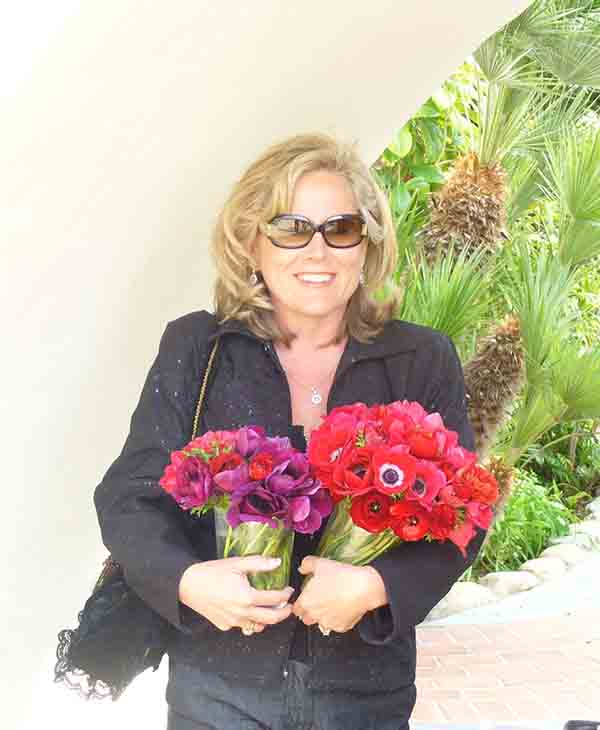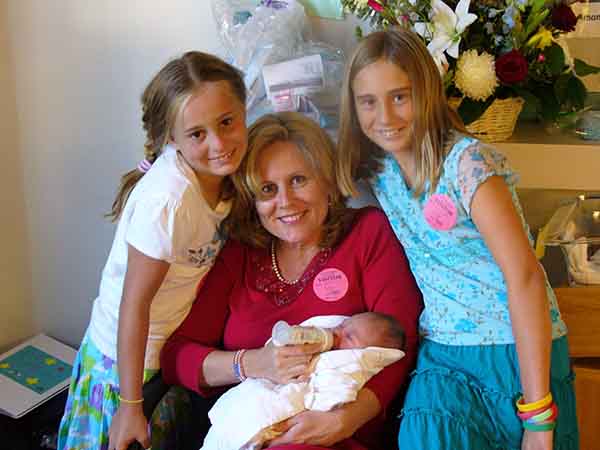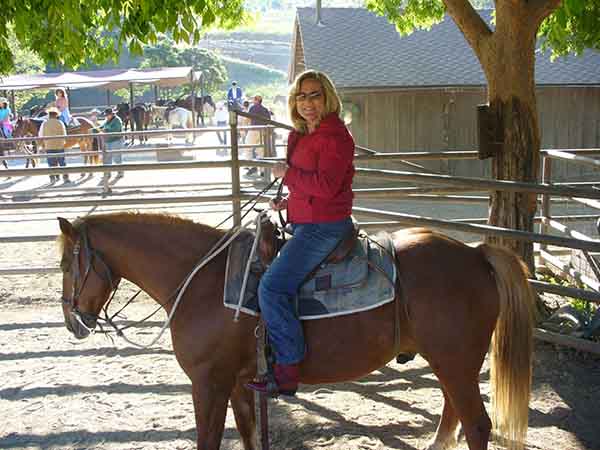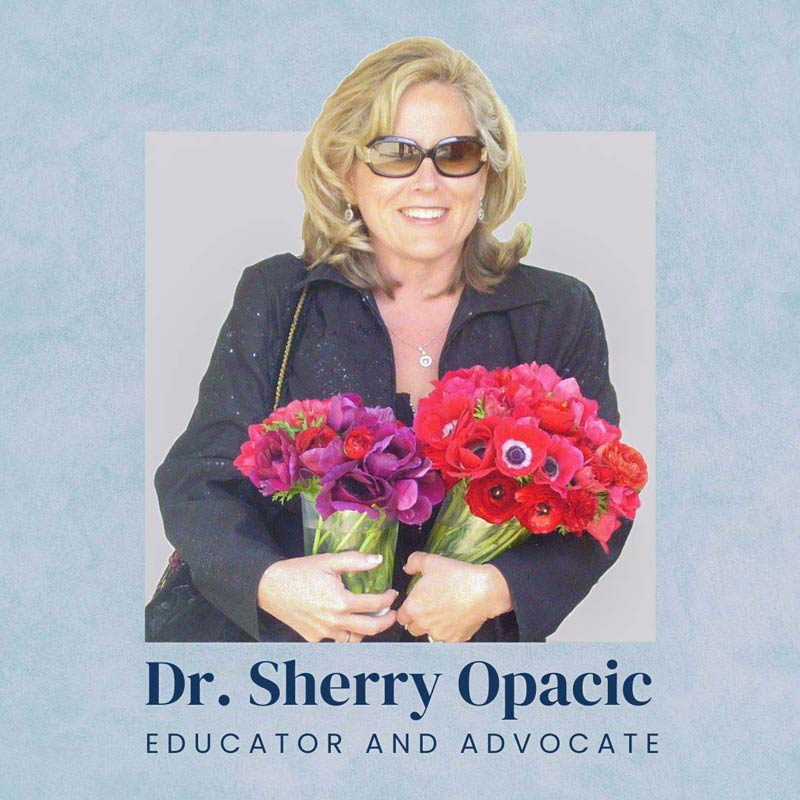CATEGORIES
Careers | People We Admire | Social ImpactOverview:
- Dr. Sherry’s journey is marked by her military upbringing, and closeness to animals.
- She advocates for making a difference in her community through inclusive education and commitment to student care.
- She continues to achieve great heights by balancing her education, her career and her family life, never backing down from a challenge.
- Dr. Sherry remains strongly dedicated to service leadership and plays a big role in charitable organizations in her community.
- Her advocacy extends beyond the classroom as she aims to empower and inspire the next generation of leaders to do the same.
1. Can you tell us more about your background and childhood and how these values shaped who you are today?
I grew up in a military family stationed at a naval weapons center. My father worked as a Liaison Officer between the Air Force and Navy, even associating closely with President Kennedy when he was at our base. My father was later asked to work for President Kennedy in the White House but declined the offer to pursue his own work. My mother was a hairdresser and owned her own salon. I also had two sisters.
In high school, I joined several clubs and served as president for most of them. These leadership roles made me realize how fascinating it is to understand and empathize with people’s perspectives and stories. Combined with my time as a literature major with a knack for dissecting good writing, my love for working with people ultimately steered me toward the field of education.
My upbringing also included a medley of pets—17 in total; a horse, a turtle, tortoises, birds, guinea pigs, rabbits, dogs, and cats. You name it, I had it! I think caring for them taught me so much about empathizing and being in tune with individual personalities. Whether interacting with animals or people, I learned to consider others’ emotions and nurture their well-being.

2. You began your career as a teacher. What led you to choose this profession?
My journey as an educator began with my involvement in the Future Teachers of America (FTA). Through this program that prepares future educators for the classroom, I gained tutoring opportunities. I was especially inspired and discovered my calling while working with children in lower socioeconomic situations. I found the unpredictable nature of young kids so humorous and delightful and I was more drawn to elementary education.
Special needs education also captured my attention. I believe I’m good at recognizing the unique learning requirements of my students. In my classroom, I prioritized adaptability, never insisting on a set seating plan, and strived to provide ample space for comfortable movement and growth.
Unlike some of my colleagues who preferred consistency in grade levels,. I embraced the challenge of teaching across different grades. These experiences laid the groundwork for my transition into a more administrative role later in life where I could make a broader impact on education. As a principal and then later as an Associate Superintendent for Orange County, I oversaw vast educational systems — 500,000 kids, 28 school districts. I established credential programs for teachers and administrators and was subsequently appointed to facilitate chief business officers for training in all of Southern California.
My interest in bilingual education was piqued by the remarkable academic performance of bilingual students, rooted in their bilingualism as pointed out by global studies. Collaborating with teams worldwide further fueled my fascination with cultural diversity and our collective pursuit of innovative solutions.
3. Do you have any advice for someone who wishes to be a teacher?
I am going to diverge a bit into a personal anecdote that encapsulates my advice. As a mother of four daughters, it was really important to me to instill in them the belief that they could achieve anything they set their minds to. I always told my girls “Smart chicks (girls) rule” and I realized how funny that was when my youngest daughter asked me “Why do you keep telling me that the smart chickens rule?.” Alongside this I also emphasized the importance of pursuing a college education. As a result, all four of our daughters have earned their college degrees.
My advice to aspiring teachers is this — never take no for an answer. When faced with naysayers who doubt your abilities, dig your heels in and prove them wrong. It doesn’t matter if it’s your own family or discouragement from respected figures, you have to persevere!
4. Could you tell us the secret to the happy marriage that you and Ralph so clearly share?
That’s something that’s really hard to put into words. We have a deep respect for each other’s work. We both studied at the University of Southern California and learned to work with each other really well while we were there. Our conversations were not just incredibly meaningful but also articulate. We could communicate really well about anything under the sun. We were really fascinated by each other and our respective work.
I’ve often heard people say that meaningful relationships encompass elements of friendship and workability. Ralph and I have always divided all of our responsibilities based on time and capacity rather than gender. He was more than happy to do the household chores when I was too busy climbing the corporate ladder and vice versa. We seamlessly take responsibility for each others’ tasks when the other person can’t get to it without the need for explicit discussion or conflict. It was crucial for us that no one person bears the weight of all the household chores.
We also expected our children to participate in all household responsibilities. It’s central to our family dynamic that responsibility and independence go hand-in-hand. Ralph and I share this philosophy that you need to be set free once you’re seventeen. We instilled the importance of accountability in our children from a young age and made sure that they not only had the freedom to make choices but also knew the consequences of their actions. We gave them the chance to go awry and learn from their mistakes, coupled with guidance and support. We are really proud of the wonderful, resilient women they have grown into.

5. Could you tell us a bit about your passions outside of work especially, your volunteer project called Loaves and Fishes?
For many years Loaves and Fishes was an integral part of our lives. This charitable organization fed thousands of poor or homeless people every Saturday. I was also actively involved in assisting those in need through our church and served as president of the National Charity League, which is an organization that supports charitable efforts within the community. Despite the exhaustion that often accompanies volunteer work, we continuously strive to better the experience for those we serve. For instance, my husband Ralph initiated a program where some of his talented friends, including opera singers and guitar players, perform at our volunteer organizations, enriching the experience for everyone involved.
Another project that has been dear to me for the past seventeen years is the Festival of Children. It unites people, companies and charity organizations to fulfill the needs of children through training, awareness, and financial support.
Additionally, during the holiday season, I started collecting linens, blankets, pillows, and coats from friends and colleagues to distribute to the homeless community because winters in California are especially rough. We also coordinate with dentists, hair stylists, and doctors to promote health and provide care to those in need.
6. Can you tell us how you de-stress or what are your sources of happiness?
Cooking for and with my grandchildren, especially my grandson who is graduating from high school is a major source of happiness for me. Seeing him cooking and doing it so well makes me realize that I have had a positive influence on his life, which is extremely fulfilling.

7. What has been your greatest challenge as an educator?
As an educator, my role is multifaceted. Balancing academic expectations with addressing disciplinary issues like expulsions and suspensions has been a significant challenge. I firmly believe in allowing children to learn from their mistakes, even though providing individualized support can be daunting at times.
One memorable instance involved a student whose grandparents informed the authorities that he just refuses to come to school. Upon volunteering to speak with him, I learned of his deeply troubled family situation; with incarcerated parents and fear of separation from his sisters, he feared being left all alone. While Ralph and I had considered adopting him, our family circumstances at the time prevented us from taking that step. Instead, we contacted and worked with the child’s aunt and discussed her taking him in and providing the stability and support he desperately needed. I think this experience highlighted the importance of educators and how they should be advocates for overall student well-being.
8. What are the challenges that you’ve faced because of your gender in your journey? How do you think things have changed for today’s generation?
Throughout my journey, I’ve encountered many instances of discrimination based solely on my gender. One thing about me is that I do not let anyone tell me I cannot do something. I’ve remained steadfast in pursuing my goals. I’ve always trusted my instincts and stuck to my plans because I believe in them.
One significant milestone was completing my Doctorate in my thirties, inspired by an instructor I admire a lot. I worked myself to death; accelerated my academic pursuits, taking four classes instead of two, and finished my Doctorate in record time — one and a half years — all while being a mother of four!
Even after earning my Doctorate, I encountered resistance, being asked to refrain from using the title of “Doctor” because none of the men in the department had received theirs. I was given parameters on where I can use the title. Undeterred though, I proudly embraced the title, supported by Ralph, who sent a huge bouquet of roses addressed to “Dr. Sherry Opacic”.
I remember another hurdle that arose when a superior of mine told me I would not qualify in an interview for the position of Associate Superintendent because I was “too pretty” for the job. I deliberately changed my style, wore the most unflattering attire I could find, wore thick glasses I couldn’t see through, and attended the interview. I answered the interview questions as I normally would and it proved successful, I got the job! The world is just scared of powerful women. Let’s leave it at that.

9. What would you tell young people who feel lost? How can they navigate their careers, relationships, starting families, and most importantly, the anxiety of the future?
I would emphasize the importance of having self-awareness and being honest with yourself about what truly brings you fulfillment. It’s about finding your passion. I also advocate for service leadership as a means of creating meaningful impact. By striving to improve others’ lives in genuine and sincere ways, you find purpose and contribute positively to the world around you.
Consider what aligns with your values, what excites you and how you can make a meaningful difference in the lives of others. Service leadership will give you purpose and serve as a guiding principle amidst uncertainty. I absolutely love and applaud the incredible work you’re doing at Girl Power Talk. You are making a tangible difference by heralding social impact for a lot of people. By lifting up other people, you also elevate yourself. As role models and mentors, you inspire younger generations to reach their full potential. So my only advice for you is to keep doing what you’re doing. Follow your passions, never take no for an answer and don’t accept defeat. It’s wonderful that your organization is working towards a better future for everyone, isn’t that what all of us want!
Conclusion:
Dr. Sherry Opacic’s inspiring life story sheds light on educators’ profound impact on students. Her journey also highlights the transformative power of service leadership and giving back to the community. Through compassion and fierce advocacy she strives to pave the way for a future fuelled by collective effort and meaningful change.


